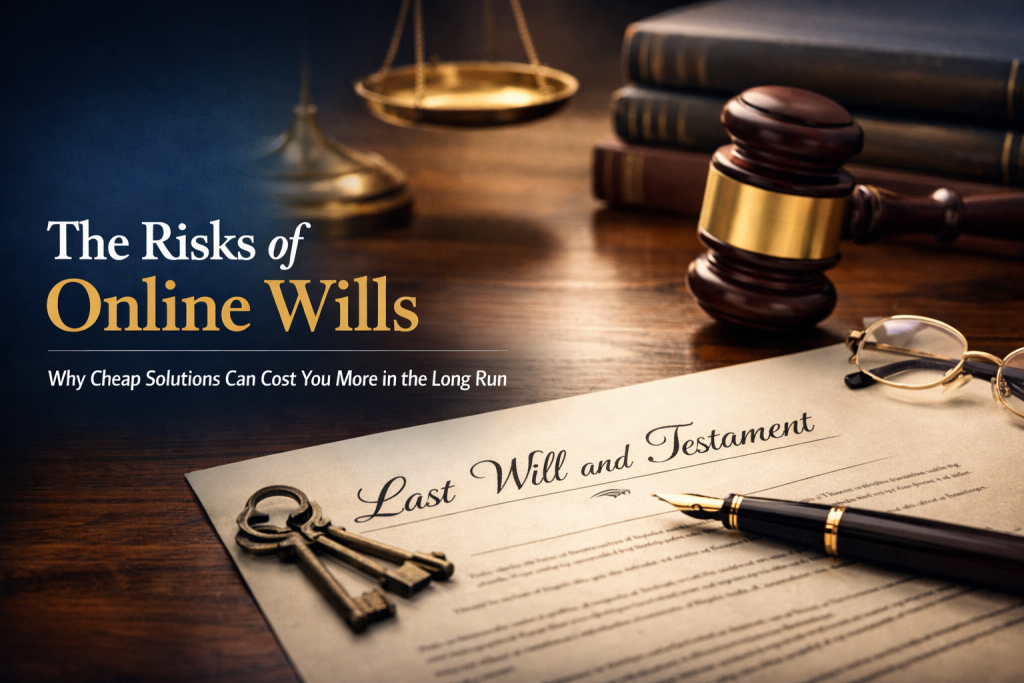If you’ve made a Will, but your circumstances have changed or you’ve simply had a change of heart, you have the option to revoke it. Whether you want to start fresh or make significant updates, revoking your Will ensures it’s no longer legally binding, giving you the flexibility to create a new document that better reflects your wishes.
There are several ways to revoke a Will under Australian law. Let’s explore the most common methods:
1. Creating a New Will
The simplest way to revoke a Will is by writing a new one. A new Will automatically revokes any prior Wills, ensuring it fully replaces the old one. However, if the previous Will remains intact, it might still be considered in certain situations, such as if your new Will is contested. To avoid any confusion, it’s best to destroy the old Will.
2. Physically Destroying the Will
Another effective way to revoke your Will is by physically destroying it. You simply need to intentionally destroy the document – you can tear it up, burn it, or take any action that makes the Will unreadable and unrecognisable. It’s important to be thorough, as Wills can be revoked in part. If your intention is to revoke the entire Will, it’s best to destroy the whole document.
If you have stored your Will with a law firm or elsewhere, make sure to retrieve any copies you may have kept and destroy them as well. Ensuring that both the original and any copies are destroyed helps prevent confusion or potential challenges later on.
3. Making a Declaration to Revoke the Will
Alternatively, you can create a written declaration that clearly states your intention to revoke an old Will. To do this, ensure the declaration includes the following:
- Write out the declaration;
- Use your full legal name;
- Include the date; and
- Have the declaration signed by two witnesses.
It’s important to store the declaration in a secure place along with your revoked Will, should you choose not to destroy the original. You may also want to create digital copies in case the physical document is lost or damaged.
4. The Effect of Marriage or Divorce on a Will
A Will can also be revoked through marriage or divorce.
- Marriage automatically revokes any existing Will of the testator. This means that if someone gets married after making a Will, the Will is typically no longer valid unless specific exceptions apply.
- Divorce has a more limited effect, automatically revoking certain provisions of the Will, including gifts to the ex-spouse, any powers of appointment granted to the ex-spouse, and appointments of the ex-spouse in key roles such as executor, trustee, or guardian. However, this does not apply to the ex-spouse when they are named as a trustee of property held in trust for beneficiaries, including children.
5. Can I Edit My Will?
While it’s technically possible to amend a Will, we generally recommend creating a new one rather than trying to modify an existing document. Amending an old Will can be complex and might lead to confusion, disputes among beneficiaries, or even render the document invalid.
At Ferraro & Singh Lawyers, we understand that relationships, assets, and finances evolve over time. That’s why we recommend regularly reviewing your Will to ensure it aligns with your current circumstances. If you need assistance updating or drafting a new Will, our experienced team is here to guide you through the process.
The information provided in this article is general advice only. Given that each situation is unique, we recommend you contact our Wills and Estates planning team if you have any questions about the information contained in this article. Our team can be reached on (03) 9311 8911.





